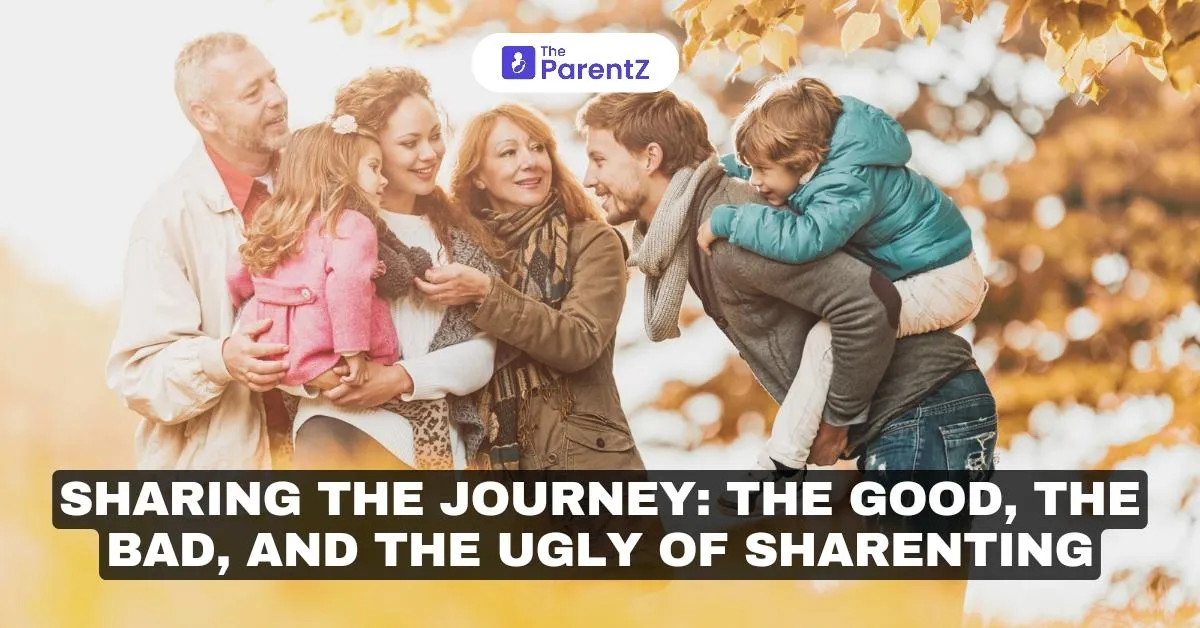In an era where social media has become our digital photo album, "sharenting" – the practice of parents sharing their children's lives online – has emerged as a complex modern phenomenon. From casual family updates to full-fledged family vlogging empires, this trend has sparked heated debates about privacy, consent, and the future implications for our children.
Understanding Sharenting
Sharenting encompasses everything from posting your child's first steps on Facebook to running a monetized YouTube channel featuring your family's daily life. It's become so prevalent that by the time the average child turns 13, parents have posted 1,300 photos and videos of them online, according to studies.
The Good: Benefits of Sharenting
- Community Building: One of the most notable advantages of sharenting is the sense of community it fosters. Parents can connect with friends and family members who may be far away, sharing milestones and everyday moments. This connectivity can provide emotional support, especially for new parents navigating the challenges of child-rearing.
- Documenting Memories: Social media serves as a digital scrapbook for families. Parents often cherish looking back at photos and videos that capture their children's growth and development. This practice not only preserves memories but also allows families to reminisce about shared experiences.
- Access to Resources: Many parents use social media to seek advice or share parenting tips. Online communities can be invaluable for exchanging information about child development, health, and education. This collective knowledge can help parents make informed decisions.
- Creating Awareness: Sharenting can also be a way to raise awareness about relevant issues related to parenting, such as mental health or child safety. By sharing personal stories, parents can contribute to broader conversations that benefit others in similar situations.
The Bad: Risks Associated with Sharenting
Despite its benefits, sharenting comes with significant risks that parents must consider:
- Privacy Concerns: Once content is shared online, it becomes part of a permanent digital footprint that is difficult to control or erase. Even if a post is deleted, screenshots or copies may exist elsewhere on the internet. This permanence raises concerns about how this information might affect children later in life.
- Exploitation Risks: Children are vulnerable to exploitation through sharenting. Sharing identifiable information—such as names, locations, or schools—can expose them to potential predators. Reports indicate that malicious individuals can use shared images for purposes like digital kidnapping or grooming.
- Identity Theft: The risk of identity theft is heightened when parents share personal details about their children online. A study by Barclays Bank predicts that by 2030, identity fraud linked to sharenting could account for significant financial losses. Criminals can piece together information from various posts to create false identities.
- Emotional Impact: Oversharing can lead to emotional distress for children as they grow older and become aware of their online presence. They may feel embarrassed or violated by content shared without their consent. This lack of agency can strain parent-child relationships and erode trust.
The Ugly: Dark Sides of Family Content Creation
The rise of social media has transformed sharenting into a lucrative business model for many influencers and content creators who monetize their family lives online. While this trend can provide financial benefits for some families, it raises ethical questions:
- Commercialization of Childhood: When children are used as content for profit, it blurs the line between parenting and business. Many influencers showcase their children's lives in ways that prioritize views and engagement over privacy and well-being. This commercialization can exploit children's innocence for monetary gain.
- Pressure on Parents: The influencer culture creates unrealistic expectations for parents to portray an idealized version of family life online. This pressure may lead to anxiety and feelings of inadequacy among parents who struggle to meet these standards.
- Long-Term Consequences: Children whose lives are extensively documented online may face challenges in establishing their identities apart from their online personas as they grow older. They might grapple with the implications of having their childhoods permanently archived on social media.
Moving Forward: Guidelines for Mindful Sharenting
For parents interested in sharing their family journey online, here are balanced guidelines:
Set Clear Boundaries
- Establish what's off-limits for sharing.
- Regular family discussions about comfort levels.
- Create content boundaries that respect privacy.
Prioritize Safety
- Avoid sharing identifying information.
- Check privacy settings regularly.
- Be cautious with location data.
- Consider watermarking photos.
Consider Long-term Impact
- Think about future consequences for children.
- Save sensitive content for private family archives.
- Regularly review and remove outdated content.
Maintain Authenticity
- Balance sponsored content with genuine moments.
- Don't force children to perform when they are unwilling
- Keep some moments private for family only.
Financial Responsibility
- Set aside earnings for children's future.
- Be transparent about the family content business.
- Have clear agreements about revenue sharing.
Conclusion
Sharenting isn't inherently good or bad – it's a modern phenomenon that requires thoughtful navigation. As we continue to shape this new normal, the focus should be on creating a healthy digital environment that respects children's rights while allowing families to share their journeys meaningfully.
The most important consideration should always be the long-term well-being of the children involved. Whether you choose to share extensively or minimally, making informed, conscious decisions about your family's digital presence will help ensure a positive outcome for everyone involved.






